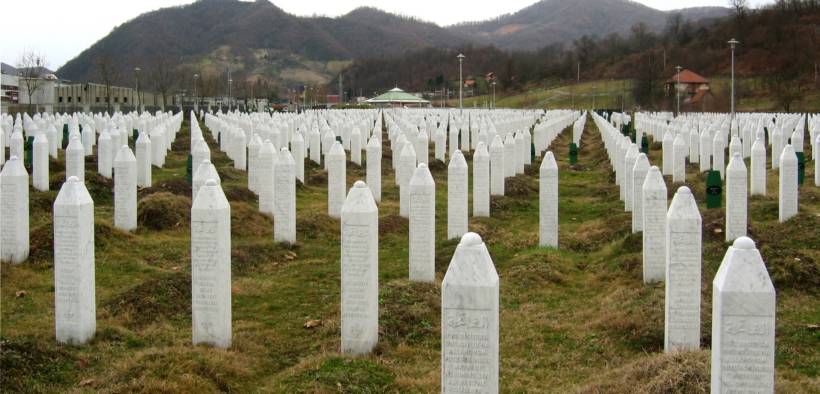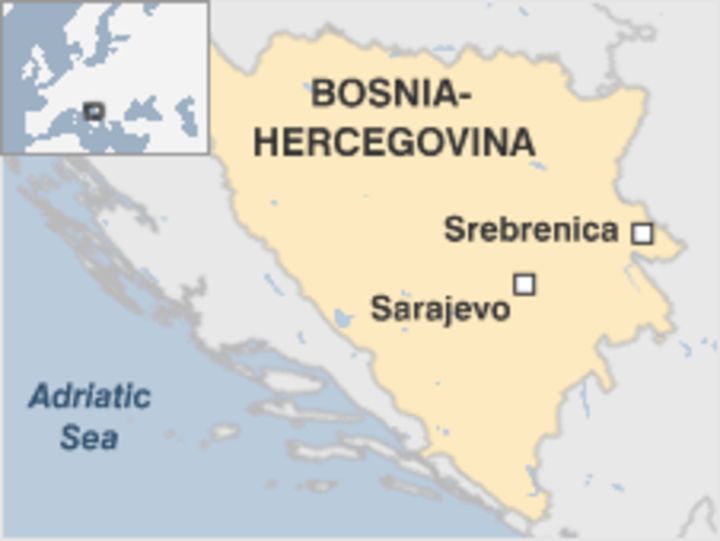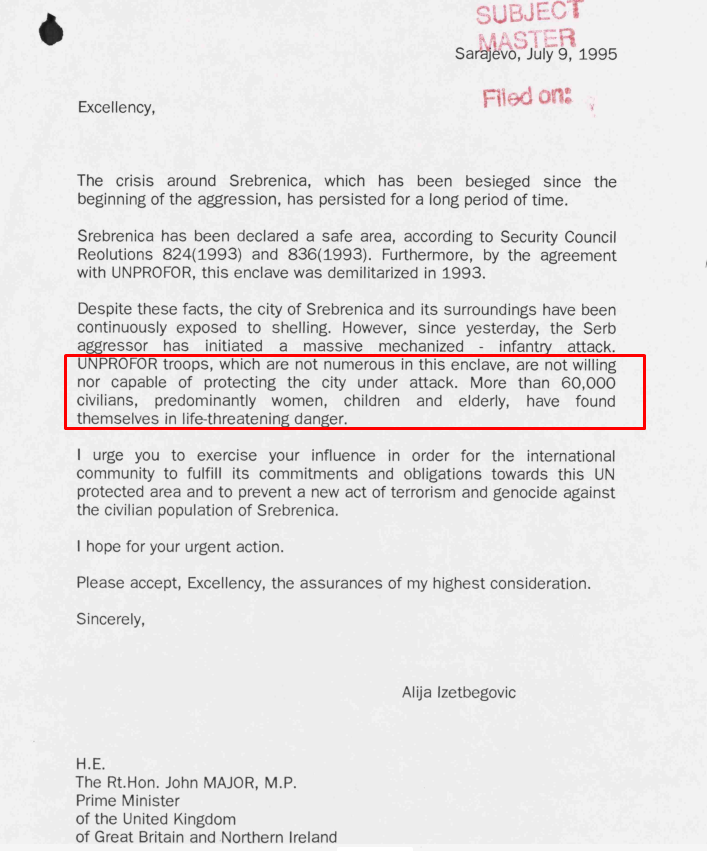Exclusive Interview With A Bosnian Refugee, The Tragic Death of Yugoslavia

“My grandparents, my aunts, and uncles lived under siege in Sarajevo for three and a half years. It was basically dubbed the largest open-air concentration camp; they had no running water, noting could come into the city, nothing could leave the city — which meant everything water, food, and medicine.”
“I was about two when the war started,” said Aida, a native refugee from Sarajevo, the capital Bosnia and Herzegovina. “We left in April, right before the war officially started in 1992, and I lived in Germany for about five years, and then moved to the United States,” Aida continued. However, only her immediate family left (mother, father, and two sisters) Bosnia and Herzegovina while the rest remained in Sarajevo, believing hostilities in the former Yugoslavia would meet a quick resolution.
Former President of the Republic of Serbia (1989-1997) Slobodan Milosevic‘s ambitious jingoism led to a series of events that saw him become the leader of Serbia and lead Yugoslavia into a bloody war throughout the majority of the incorporated republics.
President of Republika Srpska Radovan Karadzic and former commander of the Army of Republika Srpska, Ratko Mladic both were found guilty of war crimes by the International Criminal Tribunal for the former Yugoslavia (ICTY). Karadzic infamously said, “You Muslims aren’t ready for war – you could face extinction,” within the People’s Assembly of Bosnia and Herzegovina during heightened tensions between Serbian nationalists and then President Alija Izetbegovic’s Party of Democratic Action (SDA).
“My grandparents, my aunts, and uncles lived under siege in Sarajevo for three and a half years,” Aida continued, whose family represented a portion of the Bosniak Muslims within the Bosnia and Herzegovina capital during the Bosnian War. “It was basically dubbed the largest open-air concentration camp; they had no running water, noting could come into the city, nothing could leave the city — which meant everything water, food, and medicine.”

Map Of Bosnia-Herzegovina Highlighting Sarjaveo And Srebrenica via BBC
Aida would also share that the hospital where her uncle worked was bombed on multiple occasions during the siege of Sarajevo. When asked about the Srebrenica genocide, Aida detailed how the border regions of Bosnia and Herzegovina saw some of the worst war atrocities, “The closer you got to the Serbia-Bosnia border the worse the crimes got.”
Throughout Bosnia and Herzegovina, along with the other former republics of Yugoslavia, ethnic cleansing became a common thread throughout the region. While an official legal definition for ethnic cleansing doesn’t exist under international law a United Nations Commission of Experts defined the act as, ‘rendering an area ethnically homogeneous by using force or intimidation to remove persons of given groups from the area.‘
Later the same commissions’ final report, S/1994/674 further defined the horrific practices of what many describe as ethnic cleansing.
Based on the many reports describing the policy and practices conducted in the former Yugoslavia, ’ethnic cleansing’ has been carried out by means of murder, torture, arbitrary arrest and detention, extra-judicial executions, rape and sexual assaults, confinement of civilian population in ghetto areas, forcible removal, displacement and deportation of civilian population, deliberate military attacks or threats of attacks on civilians and civilian areas, and wanton destruction of property. Those practices constitute crimes against humanity and can be assimilated to specific war crimes. Furthermore, such acts could also fall within the meaning of the Genocide Convention.
As outlined in The Death of Yugoslavia documentary, Bosnian Serb forces slaughtered as many as 8,000 men and boys after overrunning the town of Srebenica. “Oh yeah, absolutely,” Aida responded when asked if she felt the international community could have done more to prevent the incident. Army Veteran CPT Chris Duesing who was stationed in Kosovo at the time discusses the same during a 2016 interview concerning his interactions with the Serbian Army.
Dutch troops are being held 10% responsible for the deaths of 350 Muslim men and boys after the fall of Srebrenica, which Ratko Mladic was the mastermind of the Dutch Supreme Court came to the following conclusion, “The State’s liability is thus limited to 10 percent of the damages suffered by the surviving relatives of these 350 male refugees. These surviving relatives may claim compensation from the State.”
Aida credited journalists like Christiane Amanpour for shedding light on the atrocities in Bosnia and Herzegovina, Amanpour would have a tense moment with then-President Bill Clinton a year before the Srebrenica genocide about the lack of his administrations’ willingness to stand up to the Serbian army.

A Letter From President Of Bosnia And Herzegovina Alija Izetbegović To United Kingdom Prime Minister John Major Days Before The Srebrenica Genocide via United Kingdom National Archives
The Serbian army had taken United Nation soldiers hostage prior to the atrocities in Srebrenica, Ejup Ganic, the Vice President of Bosnia and Herzegovina at the time spoke about the UN involvement in The Death of Yugoslavia documentary, “We [Bosnia and Herzegovina] were so happy when the UN arrived, but 10,000 civilians have been killed in Sarajevo alone. The UN stood by and watched; how ironic.”








The greater tragedy is the sweeping away the reality of ‘ethnic cleansing’ a euphemism for mass murder and forced relocation of targeted groups, compounded by historical revisionism and basically outright lies by the Bosnian Serbs under the benevolent nods of the Greater Serbia elders.
The question will always remain: how can any section of a community justify such murderous actions against essentially their neighbours.
The Bos Serbs and their masters from over the Drina river have an eternal stain upon their name and their claims. Jesus wept sorry weeps..
There were Serbians who stood up against the jingoism championed by Milosevic. I also noted the currently accepted definition of ethnic cleansing within the article. It paints a grotesque image.